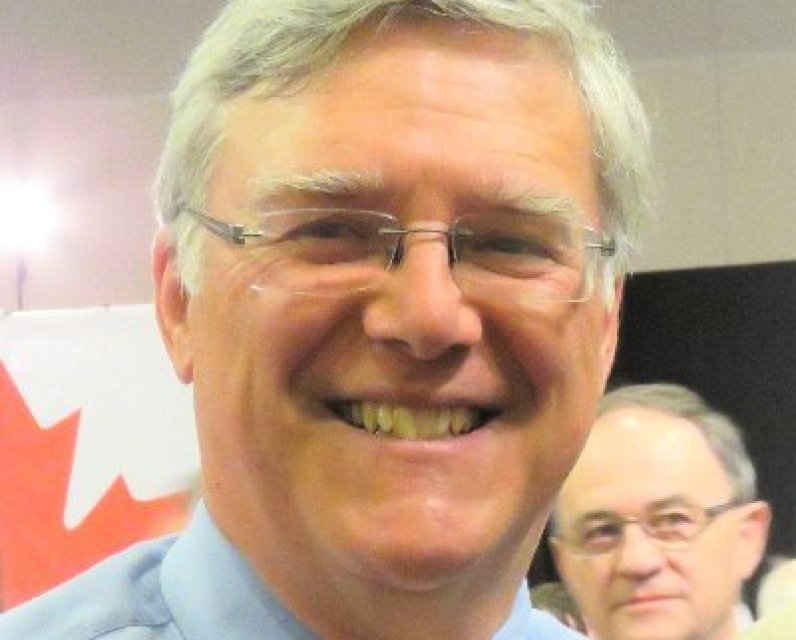Unpublished Opinions
Guy Talevi was 2022 Fundraising Chair for the Green Party of Ontario in Ottawa Centre. He lives in Ottawa.
Alex Cullen: Report on the 2010 Municipal election in Ottawa

REPORT ON THE 2010 MUNICIPAL ELECTION IN OTTAWA: The Good, the Bad, and the Ugly, by Alex Cullen, October 14, 2014
"Introduction:
Municipal governments are often described as the level of government most accessible to its citizens, the government whose services touch citizens the most: from the moment they turn on the tap in the morning (and flush the toilet), step on the sidewalk to place the garbage (and the blue or black recycle box), run to catch a bus or drive on the street looking for a parking spot – you get the picture. Ottawa’s municipal government provides an extensive array of services beyond providing basic infrastructure that affects the quality of life for its citizens – generally seen as good value for the tax dollar.
It is also a big business – the City of Ottawa’s budget is over $3.5 billion dollars and much is spent on outside service providers: to build roads and sewers, to truck out garbage and process compost, to supply professional services in health, urban planning, etc. It is also the level of government that creates wealth through land designation: an unused farmer’s field can become a shopping mall, to the profit of somebody.
The decisions of the City of Ottawa are governed by a democratic process – citizens elect a mayor and 23 councillors to make decisions and choose among competing priorities: where should roads be built? What arena should be renovated next? Should there be a reduced bus pass for university students? Should the police be given an armoured car? Should the City invest in electric light rail transit? Should property taxes be raised, or should it be bus fares, or both, or neither? Good issues for any municipal election.
Unfortunately most Ottawa citizens take their municipal government for granted – less than half of eligible voters bother to vote in municipal elections, despite the services fundamental to their daily well-being. The same can be said about their attitude towards the electoral process: not much attention is paid to who runs and how their campaigns are being financed. Yet the evidence from previous municipal elections in Ottawa (2003, 2006, and now 2010, based on financial statements filed by candidates with the City Clerk) shows that there is a group of interested players who take a strong interest in the outcome of this exercise in local democracy – so much so that they devote considerable resources affecting the outcome. And successfully, too, as the overwhelming majority of the candidates they support get elected.
Who are they? These are the corporations who do business with City Hall – the developers and their allied interests (planning consultants, engineering and transportation consultants), contractors (particularly construction, as well as waste disposal), and companies whose activities are regulated by City Hall (such as the taxi industry).
Leaving aside the philosophical argument about entities other than voters participating in and influencing municipal elections (see below), an examination of the sources of campaign finances from the 2010 municipal election reveals the following:
The election drew an array of candidates for every position (20 for mayor, 110 for 23 council seats), encouraging the supposition that the electorate had choices on the ballot;
REPORT ON THE 2010 MUNICIPAL ELECTION IN OTTAWA 6
-
However, in the mayoral race and in the overwhelming majority of city councillor races, the candidate who spent the most won. Money is an effective aid to reaching voters to win votes; those without sufficient money for their campaigns did not fare well. Choice, therefore, was reduced by this reality.
Contributions from individual voters to candidates were the largest single source of campaign revenue (55%) for many candidates for council seats (63% for the mayoralty); personal contributions from candidates accounted for nearly a quarter (24%) of campaign revenues for those running for councillor (18% for the mayoralty), with some 21% of campaign revenues for council seats coming from corporations and unions (19% for the mayoralty).
So, is there a problem? Yes - the problem is three-fold:
In other words, there was a focussed effort to assist a select group of candidates by a particular set of organizations (corporations which do business with City Hall) who had a clear interest in the outcome, so much so that they supported 19 candidates running for 17 council seats, directing the bulk of their funds to these candidates (2 of the remaining candidates for 6 council seats took no contributions in this election as they used surpluses from the previous election). And they were very successful, electing 17 of 19 city council candidates. And not for the first time in Ottawa, either." - Alex Cullen
Corporations that contribute to municipal campaigns do not reflect the general corporate population in Ottawa – the record of contributions received by candidates clearly show that most of these (over 70%) come from corporations that do business with City Hall.
Further, at the city councillor level, the bulk of these contributions (nearly three- quarters) were focussed at 19 candidates in this election – 17 of whom won.
As well, due to the individual donation limit (the maximum that can be donated to a candidate is $750) and the total combined donations limit that can be contributed in a municipal election (total contributions are not to exceed $5,000), these corporations took additional steps to channel significant funds to their chosen candidates through using associated companies to issue donations and through the use of family members and employees to donate as well.



Comments
Be the first to comment